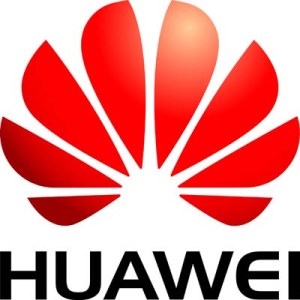 The African telecommunications market is large, filled with many opportunities, and has several countries investing in this lucrative industry. Asian interest, in the form of Chinese technology solutions providers and, recently, Indian telecoms providers, has a significant presence in the market, yet the majority of the discourse on economic relations between Asian and African countries focuses on other sectors such as natural resources. Thus, little attention is paid to the telecoms sector and foreign interests originating from Asia in this African market.
The African telecommunications market is large, filled with many opportunities, and has several countries investing in this lucrative industry. Asian interest, in the form of Chinese technology solutions providers and, recently, Indian telecoms providers, has a significant presence in the market, yet the majority of the discourse on economic relations between Asian and African countries focuses on other sectors such as natural resources. Thus, little attention is paid to the telecoms sector and foreign interests originating from Asia in this African market.
Nigeria, Africa’s most populous nation of over 140 million, can be used as a case study of the extraordinary growth of the telecoms sector on the African continent. Nigeria is possibly the largest telecoms market on the African continent and is already a leading market for Information and Communications Technology (ICT) services and investment in West Africa.(2) Nigeria’s telecoms market is filled with ample opportunity for telecoms operators, and along with the majority of African countries, Nigeria has underdeveloped telecommunications facilities. There is a possible link between economic affluence and the large-scale presence of telecommunications.(3) The telecoms industry in Nigeria has contributed to the economy in terms of employment generation and foreign direct and private investment.(4) This paper will examine both Chinese and Indian interests in the Nigerian telecoms industry.
The Nigerian telecoms industry
Although the Nigerian economy is heavily reliant on income generated from oil reserves, the country’s telecoms market has undergone massive growth, which has resulted in economic growth. Today, Nigeria is considered one of the major markets for telecoms business opportunities in the world.(5)
With the advent of a democratic Government in 1999 after decades of military rule intent on reform, the telecoms sector was deregulated, foreign investment encouraged, and licences were introduced as part of the Government’s liberalisation policy. Along with the introduction of the Global System for Mobile communication (GSM),(6) GSM service providers were selectively granted licences and Nigerian Telecommunications Limited (NITEL) was set in the process of privatisation.(7) This led to substantial growth in the sector, where prior to the reforms, the ICT penetration in Nigeria was considerably low with less than 1% of the population having access to a telephone due to high connection costs.(8)
The Nigerian telecoms sector was previously managed by both NITEL and the Nigeria Communications Commission (NCC), which acted as an independent regulator of the sector. While NITEL was charged with all national planning and coordination of telecoms services, the NCC was concerned with promoting private investment and infrastructure.(9) Since 1999 NITEL and its mobile division, M-Tel, have been up for privatisation; however, this goal is yet to be reached to due to several complications.
The Government’s deregulation of the telecoms sector effectively increased competition in the market, significantly reduced tariffs, improved countrywide network coverage and provided employment opportunities in the country.(10) In 2001, the first mobile service in Nigeria was brought in and mobile penetration quickly overtook fixed-line penetration as Nigeria began its ascent to become part of the fastest growing mobile markets in Africa.(11) The biggest mobile providers in Nigeria have been MTN Nigeria, Globacom and Bharti Airtel, the latter of which has passed through several buyers and brand names. It is interesting to note that these mobile providers are foreign-owned companies except one, Globacom. Moreover, all these companies also have a presence in other African countries.
At the end of 2002, the Nigerian telecoms market was worth around US$ 1.1 billion and had experienced an annual growth of 37%.(12) It has been estimated that as of August 2007, there were 45.5 million mobile phones in Nigeria and, that by the end of 2010, there were 89 million connected lines with most people owning more than one cell phone in order to take the best offers of different providers.(13) By the end of 2010, the total number of mobile subscribers in Nigeria was 87.3 million.
Private sector investment in Nigeria’s telecoms sector has increased from about NGN 1.09 billion (US$ 50 million) to over NGN 3,865 billion (US$ 25 billion) by 2010. Furthermore, by the end of 2010, 65 Nigerians out of every 100 had phones, which suggests that though the majority are connected, there is still some opportunity to be had in the sector.(14) The market is expected to continue growing, as the total number of mobile subscribers is expected to reach 90.47 million people by the end of 2011.(15) Subsequent licensing by the NCC has given GSM network providers the responsibility of providing fixed and mobile telephony, and Internet and broadband access, thus increasing their range of services.
The Nigerian telecoms sector has become the largest generator of foreign direct investment after the country’s oil and gas industry.(16) A few international agencies and institutions have invested in companies operating in the Nigerian telecoms industry; for example the International Finance Corporation (IFC) has loaned NGN 61,078 million (US$ 395 million) to MTN Nigeria. This has been the IFC’s second largest investment in any African country thus far.(17) Other institutions that have invested in the Nigerian telecoms sector include the Export-Import Bank of the United States, the African Development Bank (AfDB), and the Development Bank of Southern Africa (DBSA).
Despite the enormous successes the Nigerian telecoms sector has seen in recent years, the industry is not without challenges. For example, though the use of GSM and mobile phones is widespread, there is still no similarly adequate development of landlines and its associated services such as faxes. Though NITEL was set up for privatisation in 1995, the company is yet to be fully privatised due to difficulties securing a takeover, including non-clarity of takeover terms and general poor management. As of this year, NITEL remains in limbo.(18) There is also a need for enhanced competition in the market due to the very few providers that currently dominate the Nigerian telecoms sector, leaving no room for smaller providers.
Furthermore, Nigeria’s current political environment is a potential cause for concern, as the Nigerian Government constantly interferes in the country’s telecoms industry due to the amount of money generated by cellular operators.(19) Despite the costs that come in the form of lack of sufficient infrastructure, notably the unstable and generally insufficient power supply, foreign investment in the Nigerian telecoms market continues.
Asian interest in the sector
The South African-owned MTN Nigeria is one of the foremost actors in the Nigerian telecoms market. MTN Nigeria is regarded as a pacesetter in the market and provides a compelling success story.(20) As mentioned above, with the exception of Globacom, other GSM and licensed providers in the Nigerian telecoms market are owned by non-Nigerians. Asian players in the Nigerian telecoms sector come in the form of Chinese companies providing mobile phones and technological equipment to the major telecoms operators, and recently, the entrance of Indian owned Bharti Airtel into the African market.
Companies such as Airtel and multinational conglomerate TATA, both of which operate in Nigeria, invest in African markets on their own volition and do not seem to be supported by the Indian Government.(21) These companies wield considerable influence in the Nigerian market and Nigeria is the third biggest importer of Indian goods and services on the African continent.(22) Through Bharti Airtel, other Indian companies are grabbing a share, not only in the Nigerian, but in the wider African market also. Companies such as Tech Mahindra, an information technology outsourcing company now provides customer care services in several African countries. Through partnering with Bharti Airtel, Tech Mahindra has also partnered with MTN and Multilinks in Nigeria.(23)
The very large Chinese telecoms provider of telecoms equipment and network solutions, Zhongxing Telecommunication Equipment Corporation (ZTE) also has a presence in the Nigerian mobile telecoms market, mostly through cooperation with existing GSM and code division multiple access (CDMA) operators in the country. ZTE established a subsidiary company in Nigeria in 1999 – the same year that the Nigerian telecoms sector was deregulated – and reportedly regards Nigeria as “key for their African business activities in the next couple of years.”(24) Huawei Technologies, another Chinese corporation, also established its operations in Nigeria in 1999 and boasts that more than 50% of its employees are local.(25) Huawei provides telecoms solutions and possesses knowledge in telecoms network infrastructure, software, devices, and professional services.(26) Currently, Huawei has a vantage position in the Nigerian telecoms market as a hardware provider in cooperation with telecoms operators in Nigeria.
Foreign players in the Nigerian telecoms sector boast about their contributions to developing the market and creating jobs. Huawei has built a training centre in which apparently more than 800 people had undergone training with Huawei by February 2006 and the company also claims to have trained teachers at Nigerian universities.(27) Bharti Airtel also engages in other developmental projects as part of their strategy to become a household brand in Nigeria.(28) Nonetheless, there is still some dissatisfaction with the benefits these telecoms operators are giving to the local Nigerian market they operate in.
Conclusion
The Africans telecoms industry provides opportunities for foreign investment due to the large size of the market and the demand for both mobile and fixed-lines. Since 1999, the Nigerian telecoms market has seen a spurt of growth, an increase in foreign investment and the entrance of foreign telecoms operators into the market. Asian companies, hoping to take a share of profits in the Nigerian and wider African telecoms markets have come in the form of telecoms operators and telecoms equipment and solutions providers. It has been suggested that the overall development of a country is linked to the development of its telecoms sector. While telecoms operators in Nigeria have done their part in providing employment opportunities and participating in development projects, it still remains to be seen how these companies will improve Nigeria’s economy in the long-term.




